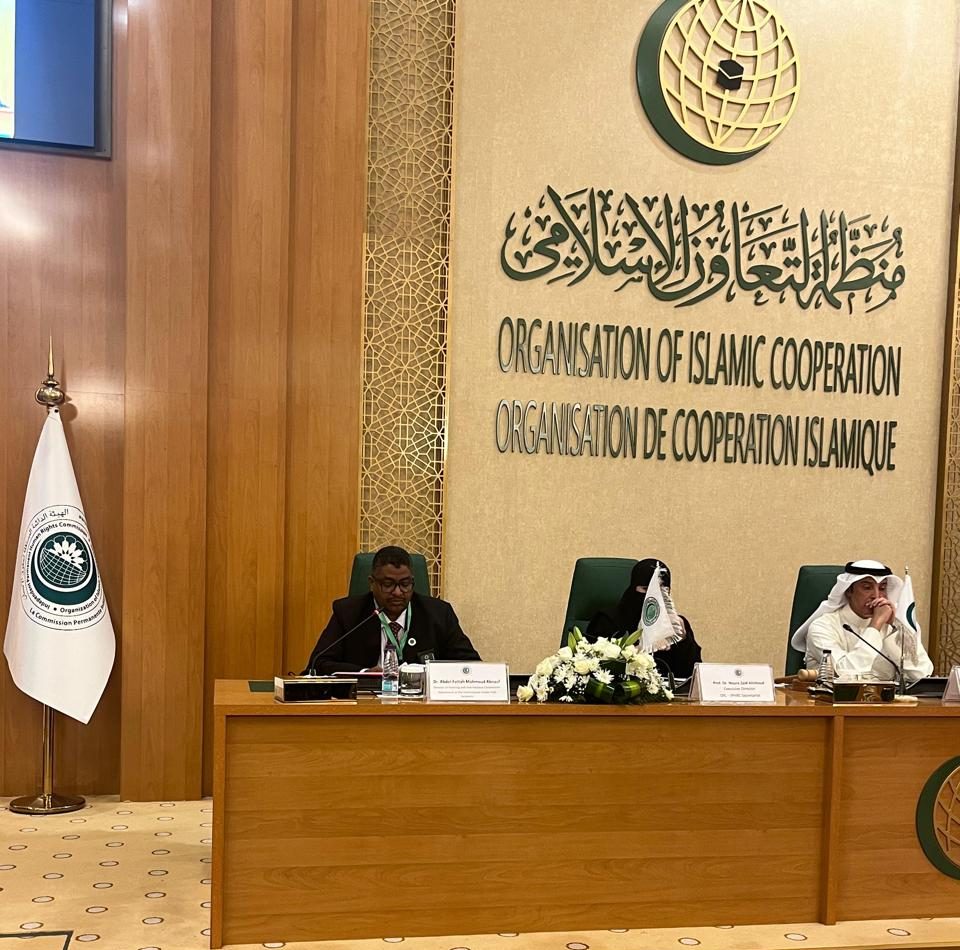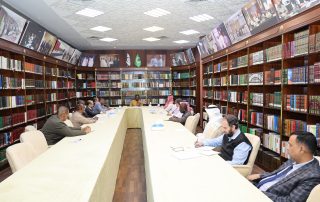
At the kind invitation of the OIC’s Independent Permanent Human Rights Commission, Dr. Abdulfatah Mahmoud Abnaouf, Director of the Planning and International Cooperation Department, representing the Secretary General of the Academy, presented a paper at the 24th Ordinary Session of the Commission, entitled: “International, Normative and Islamic Legal Perspective on the Right to Health” on Sunday, 22 Jumada Al-Ula 1446, corresponding to 24 November 2024, in Jeddah.
Dr. Abnaouf began his paper, “First of all, I extend my sincere thanks and greetings to the Independent Permanent Human Rights Commission for organizing this event on this important topic, which is the right to health from the Islamic perspective, which confirms its permanent and constant care for everything related to the field of human rights.” He then presented an overview of the right to health from the Sharia perspective, stressing that the protection of the right to health is the protection of human beings, societies and countries, considering that health is the center of the human being and its basis on it, and therefore international charters, conventions, treaties, regulations and various legislations are concerned with it because of its extreme importance and its connection to human life and survival.
Dr. Abnaouf reviewed this right as a part of international conventions, including The Universal Declaration of Human Rights 1948, the International Covenant on Civil and Political Rights 1966, the International Covenant on Economic and Social Rights 1966, the International Convention on the Elimination of All Forms of Racial Discrimination 1965, the Convention on the Rights of the Child 1989, the African Charter on Human and Peoples’ Rights 1979, and other international charters and conventions. He then spoke about the right to health from the Islamic perspective, indicating Islam’s keenness to protect and preserve the human soul, through the great importance assigned to our rich intellectual heritage, which includes great values, the basis of which is to achieve the good of humanity, remove embarrassment and hardship from them, and want to make it easier for them. He pointed out that Islamic jurisprudence is compatible with all aspects of life and cited many Qur’anic and Hadith references that emphasize and call for this right. In this regard, he referred to what was addressed in the comprehensive document issued at the twenty-third session of the Academy’s Council Conference, which was held in Medina under the title: “The need to protect the soul and human health and preserve it as much as possible from diseases, which Sharia has made obligatory to save lives and souls from perishing, and made saving the soul a right for every individual, by preventing diseases and illnesses before and after their occurrence.”
Dr. Abnaouf concluded by reviewing the contributions of the International Islamic Fiqh Academy in this field, stressing that the Academy has strategic partnerships with several health-related institutions through which it aims to achieve intellectual convergence and knowledge integration between jurists and specialists in the field of medical and health studies to clarify Sharia rulings on contemporary life issues and to achieve the interest of all humanity. This includes the Islamic Organization for Medical Sciences in Kuwait, the Standards and Metrology Institute for Islamic Countries (SMIIC), the Islamic Polio Advisory Group in cooperation with the World Health Organization, Al-Azhar University and the Organization of Islamic Cooperation, and the Saudi Food and Drug Authority, among others.
Read Also
Lastest








